by Alex Shtaerman
If one accepts Hip-Hop to be a modern day renaissance, it goes without saying that DJ Spooky ranks among the movement’s preeminent scholars. An acclaimed writer, musician and conceptual artist, Paul D. Miller aka DJ Spooky that Subliminal Kid has collaborated with everyone from Yoko Ono and the late Greek composer Iannis Xenakis to Chuck D of Public Enemy and Killah Priest of the Wu-Tang Clan. With a willingness to bring the Hip-Hop mindset into new domains, DJ Spooky has consistently blurred the lines of what Hip-Hop could be as well as how and where people are able to connect with the culture. Miller’s first book “Rhythm Science” was published by MIT Press in 2004 and received rave reviews.
Back behind the turntables for his latest mix CD compilation, In Fine Style: 50,000 Volts of Trojan Records, DJ Spooky takes us on a journey back in time as he blends a variety of classics from the legendary Jamaican label into a soundscape that touches on some of Hip-Hop’s earliest reference points. “As far as I’m concerned, Jamaica has been part of Hip-Hop from jump. Everything from MC battles to DJ battles to sound systems, Kingston had it all”.
RIOTSOUND.COM: For a casual fan of your music, someone who may be familiar with some of your material but not up on all of your projects; how would you describe your overall musical vision?
DJ SPOOKY: Everything I do is all about the mix; social, political, economic, it’s a deconstruction of all the crap the 20th century has left behind. I really think that mix culture is that deep. It reflects so much of what is best in humanity, what makes people relate to their fellow human being. I guess you could say I’m a musical idealist.
RIOTSOUND.COM: When you were young your mother owned an international fabric business and you were able to travel a lot; how did that affect your outlook on music and Hip-Hop in particular?
DJ SPOOKY: My mom’s store was called Toast and Strawberries; I used to spend afternoons there after school. I’d play soccer with my high school’s team and then ride a bike to my mom’s store and do chores and whatnot. Then I would take a break and listen to records. I never really got into TV that much; I just liked to listen to records a lot. That made the transition into DJing [easy]. I started producing tracks when I got to college as a way of passing the time.
My dad passed away when I was 2 years old and I checked out his records as a way of getting to know him. My mom wanted us to travel a lot so we wouldn’t get caught up in this whole American trip of race; black, white, whatever. We had German exchange students and Nigerian exchange students [and others] stay at our house, so I was always open to people from different cultures. That’s what Hip-Hop is about to me.
RIOTSOUND.COM: You got a new double mix CD out that features a variety of tracks from the legendary Jamaican label Trojan Records. How did you go about picking out the music for “In Fine Style: 50,000 Volts of Trojan Records”?
DJ SPOOKY: As far as I’m concerned, Jamaica has been part of Hip-Hop from jump. Everything from MC battles to DJ battles to sound systems, Kingston had it all. America was caught up in disco fever when Kool Herc showed up and switched the soundtrack. I pay respect to Herc and I pay respect to how dancehall helped shape what we know as Hip-Hop.
On the compilation I went through a lot of my records and found different versions of classic tracks; stuff like Desmond Dekker’s “007 Shanty Town” that Special Ed sampled or Lee Scratch Perry’s “Disco Devil” out take from Max Romeo’s “Iron Shirt” which Kanye West sampled. 50,000 Volts of Trojan Records looks at the intersection of Hip-Hop, sampling, and different production techniques. I just want people to connect the dots.
RIOTSOUND.COM: In your view, what are some of the most important values of Jamaican sound system culture that contributed to Hip-Hop and to the growth and evolution of music in general?
DJ SPOOKY Let’s put it this way, the sound system situation is a kind of musical democracy. Some people get to vote with their styles and others get to vote with how they respond or don’t respond to the different performers. There’s so many ways that I think this kind of way of presenting shows flipped all the usual performance issues of the day. At the height of the Beatles era people were just going to shows to see the band. The Jamaicans flipped that and made people go to shows to hear records. What could be weirder? I think you have to realize that today, most of the groups you hear, you hear because you checked out their record first, and then went to see them. That’s another gift from Jamaica.
RIOTSOUND.COM: While many fans know you for your music, you have also received tremendous acclaim for your written works; what’s your perspective like as a writer?
DJ SPOOKY: My first book titled “Rhythm Science” came out on MIT Press a little while ago. There are people in the Hip-Hop scene like Toure, Jeff Chang and Kodwo Eshun whose work as writers I pay mad respect to. What I always try to push with my books is for people to look at DJing as a different kind of literacy – you read the rhythms – that’s why I always include a mix CD. My next book “Sound Unbound” will also have a DVD of rare material [and more].
It’s all about literacy; I think that on one hand the IPod revolutionized the way people listen to music and on the other, the sound system and the way it relates to literature put people into a scenario where creativity itself comes out of everything from video games to web searches to blogs to shareware [and everything else]. My style of writing reflects that.
RIOTSOUND.COM: As a DJ, how do you feel the artform has evolved over the last decade? From a technical standpoint, a lot of DJs are going away from vinyl and many have abandoned it altogether, do you think that may be detrimental to the art?
DJ SPOOKY: I’m all about checking out different software at this point. My last couple of projects were with Sonar and Logic and I used MAX patches for some of the effects on my Drums of Death project with Chuck D and Dave Lombardo. I had to re-edit the material into different versions, in the same way the Jamaican producers like Lee Scratch Perry or Linval Thompson or King Tubby would version tracks. “In Fine Style” pushed some of those issues. I want people to take a break from the hecticness of this era to go back for a moment to when it was all new.
The mixes on the compilation are all based on different recording techniques, so I guess it’s about getting people to listen to how things have evolved. So much of my material is digital at this point I actually had to go back to these analog styles just to remember how things have changed. Have you listened to an 8 track lately?
RIOTSOUND.COM: Your work has crossed over into electronic music, hip-hop, jazz and you even collaborated with heavy metal artists such as Dave Lombardo. In bringing together genres and styles that some might say (stereotypically speaking) are disconnected or opposed to one another, where have you always been able to find a common ground?
DJ SPOOKY: I guess that’s the basic point, it’s all about looking at life from the view point of “the mix”. There’s very little out there that I wouldn’t check out musically, if just to keep my ears open. One of my favorite producers is Rick Rubin. Back in the day he used to produce the Beastie Boys, LL Cool J, Slayer and Public Enemy all at the same time! That took EARS! I just wish I could be that open right now. I think that Rick Rubin just produced the last Johnny Cash record, so yeah, that’s what I’m talking about.
All the early Hip-Hop classics [such as] “The Adventures Of Grandmaster Flash On The Wheels Of Steel” or Afrika Bambaataa’s “Death Mix”; they were records [made during a time] when the rules hadn’t sunk in yet and people were just playing records that they liked. I want to update the formula on that for a bit.
RIOTSOUND.COM: You got In Fine Style: 50,000 Volts of Trojan Records out now; what else should fans be looking out for as far as DJ Spooky goes?
DJ SPOOKY: I’m working on finishing my film “Rebirth of a Nation”, it’s a remix of the early Ku Klux Klan film, it’s gonna be ill!
For more news and info on DJ Spooky check out www.DJ Spooky.com and www.RhythmScience.com









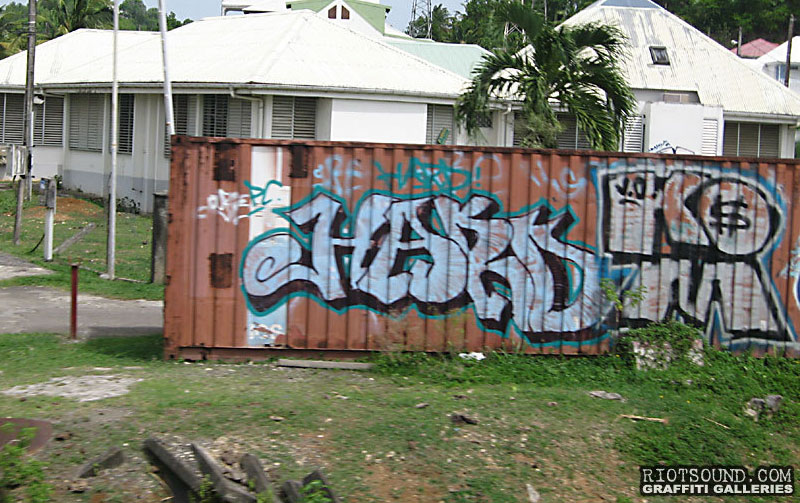

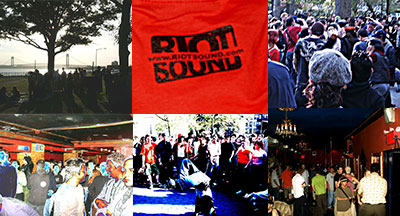
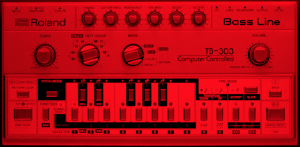














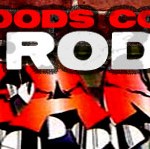



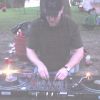

Comments